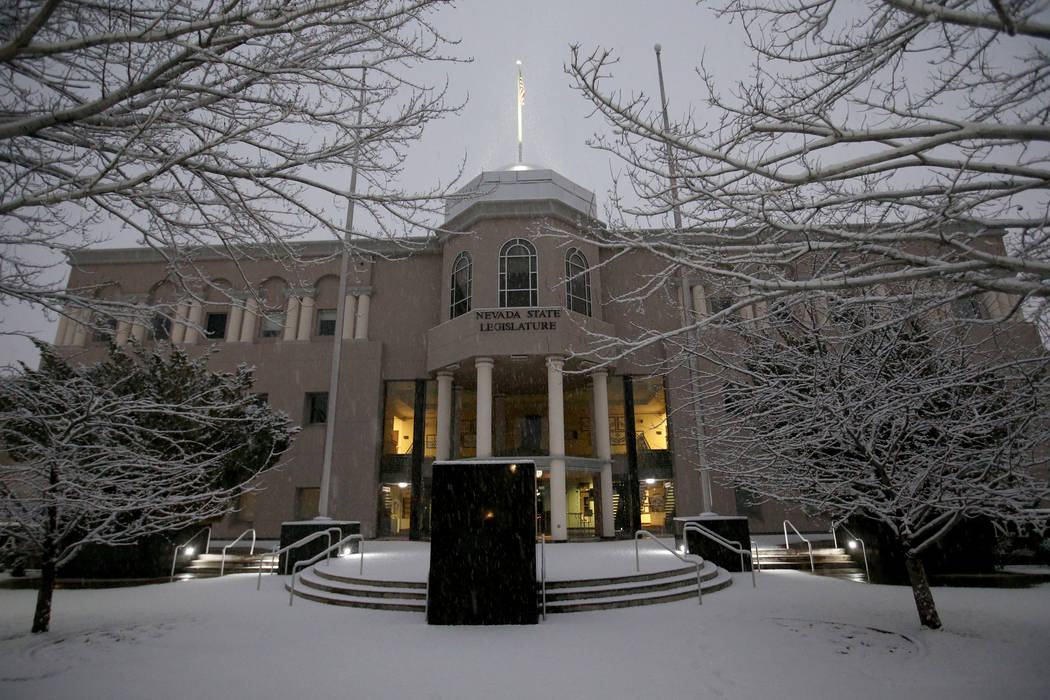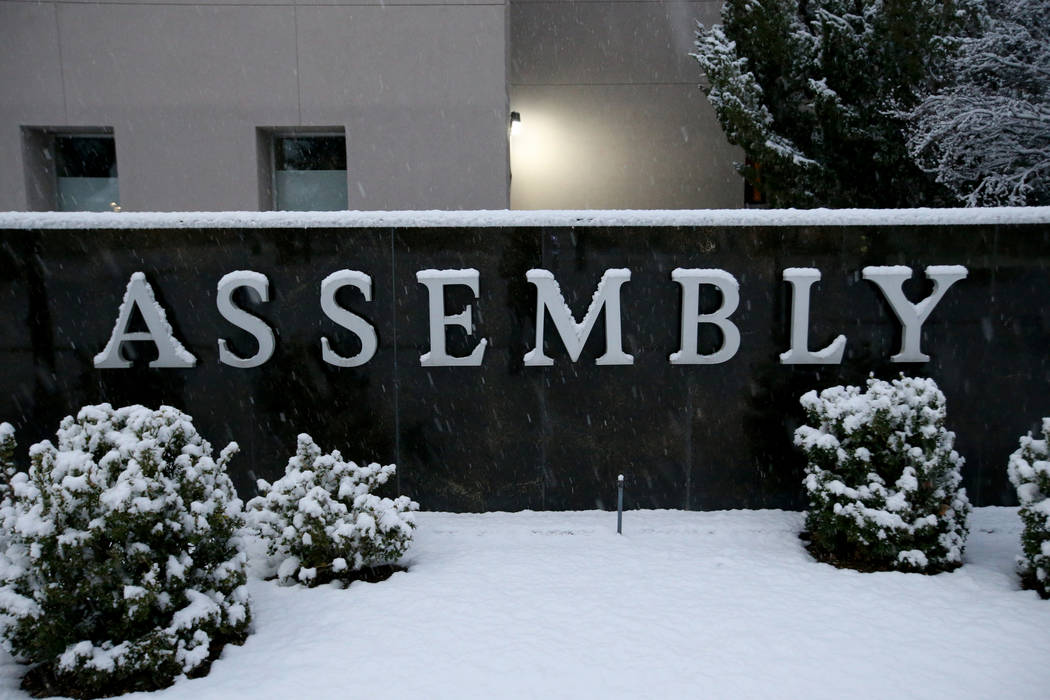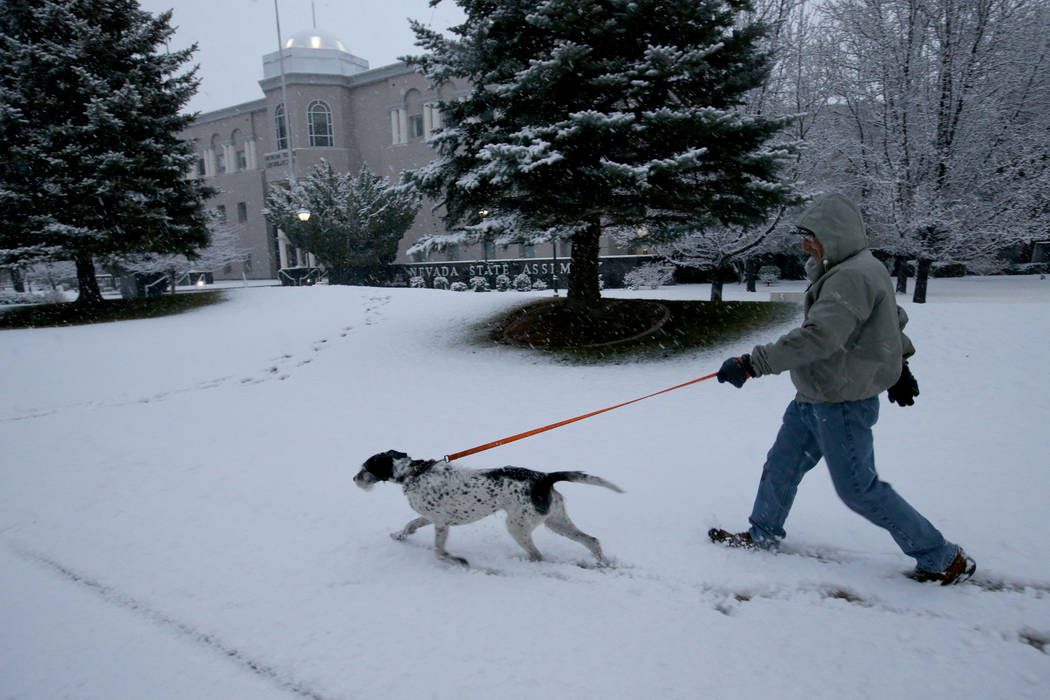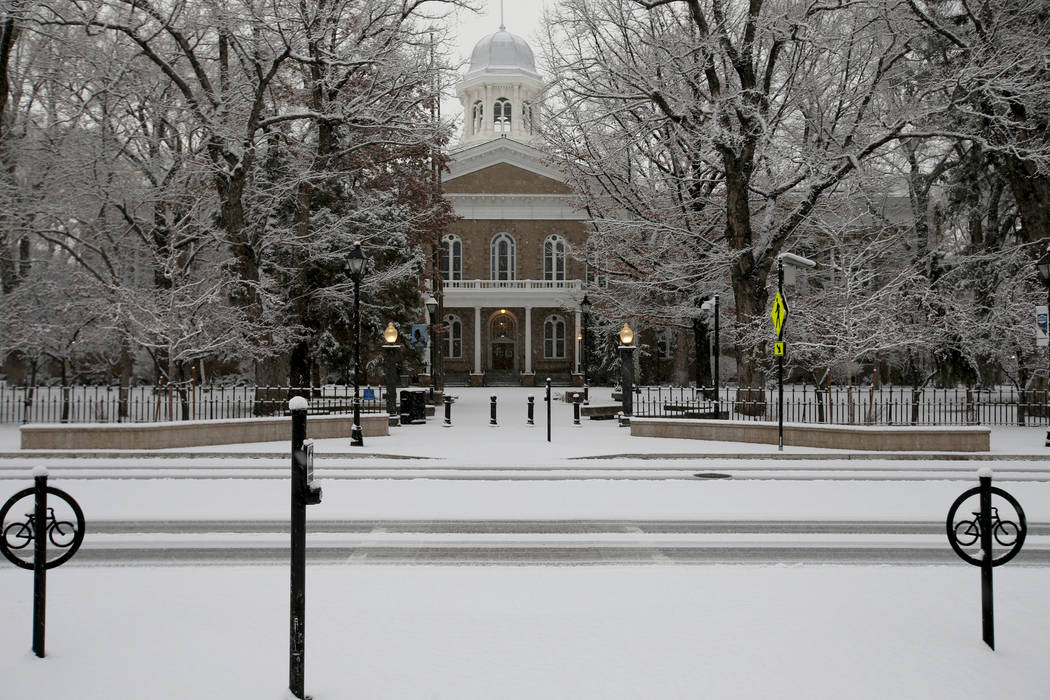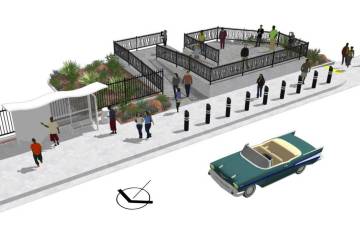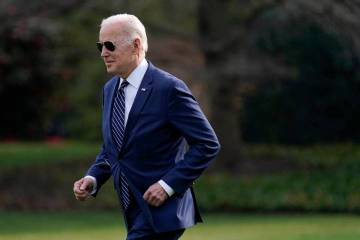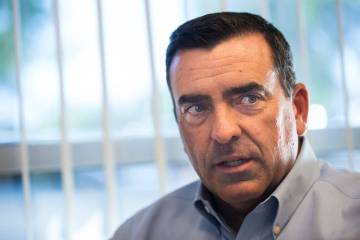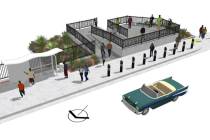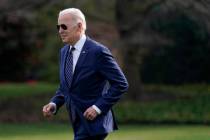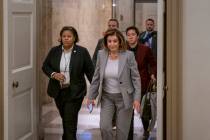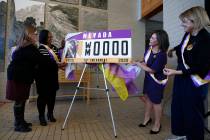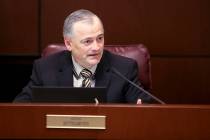2019 Legislature: GOP pragmatic about position this session
CARSON CITY — Republicans enter the 2019 Nevada legislative session at a distinct disadvantage against Democrats, focused as much on steps needed to rebuild their numbers and make the case for a return to strength while not raising a white flag of surrender for the session entirely.
Democrats hold the governor’s mansion and all but one other statewide office. They possess a supermajority in the Assembly and close to that advantage in the Senate.
Yet Republicans are cautiously optimistic, with emphasis more on the former. GOP leaders say they will support good ideas where they see them, concede when they must, fight when they can, and throughout the session, fulfill the role of loyal, occasionally vocal opposition.
“It’s obvious that (Democrats) have a supermajority in the Assembly, so the Senate is going to be the one that does most of the negotiating, I’m sure,” Assembly Minority Leader Jim Wheeler, R-Gardnerville, said last week. “But we expect to have input, because I don’t expect the Democrats actually want to run over the top of us.”
Wheeler, who on Monday will enter his fourth session in the Assembly, outlined Republican goals for the session in a sit-down interview in between budget briefings for the Legislature’s Interim Finance Committee, on which he sits as a member of the Assembly Ways & Means committee. His Senate counterpart, Minority Leader James Settelmeyer, R-Minden, did not respond to multiple requests for an interview.
The 21 Republicans in the legislature — 13 in the Assembly and eight in the Senate — discuss every vote as a caucus and “will hold tight on whatever we decide,” Wheeler said.
“There are going be some cases where we don’t want to be the minority party, we want to be the opposition party,” he said. Asked to define the difference, he added, with a grin: “The minority party gets run over meekly. The opposition party gets run over with a lot of noise.”
High-profile disagreements, tax fight
Wheeler noted that most bills move through the Legislature with near unanimous support. The bills where partisan battle lines form will likely relate to topics such as gun control, taxes and education.
The GOP hopes to raise a bill this term that would inject funding into Education Savings Accounts, an unfunded school choice program created in 2015 that aims to give families state money to pay for private schooling. The GOP plan would cover students who want to change schools because of bullying.
Republicans also believe they have the numbers to challenge Gov. Steve Sisolak’s proposed extension of two taxes scheduled to end or decrease. There is partisan disagreement over whether extending a tax essentially constitutes enacting a new tax. A new tax would require a two-thirds vote of lawmakers, and hence, Republican support.
“When you extend a tax, you’ve defeated the legislative intent, because the tax was intended to sunset,” Wheeler said. “So if you’ve defeated the legislative intent, then it’s a brand new tax, and it will take a two-thirds (majority).”
Republicans, Wheeler said, are concerned that proposed changes to school funding formulas will shift funds away from school districts in the rural areas they represent based on cookie-cutter, per-pupil metrics that discount unique regional needs, such as higher transportation costs.
They’re willing to back raises for state and K-12 employees if the resources are there, but want proposed pay increases to go to teachers, not to other categories of school employees.
“If you just carte blanche say you’re giving teachers a 3 percent raise, well, let’s make sure it is for teachers,” he said.
They oppose the push to allow collective bargaining for state workers, but don’t have the numbers to block it. Wheeler, citing projections of slowing economic growth two years hence, predicts decisions like that will leave the state “scrambling for money.”
Focus on future
Amid rising health care costs, such as for the state’s share of Medicaid, Wheeler is pragmatic, noting that Republicans may have opposed programs but acknowledge both the need and resources to pay for them — for now, anyway.
“It looks to me like the money is there in this biennium to make that happen,” he said, referring broadly to health spending increases. “I think you’re going to have a big, big problem in the next biennium.”
It’s a focus on 2020 — a significant election year, with legislative control of the next decennial census at stake — that undergirds Republican strategy and tactics this term. The GOP caucus, feeling spurned and mistreated by the media, will turn to social networks, direct communications such as newsletters and email marketing and advertising to spread and amplify their message.
Republicans this session need to “make sure that the voters of the state are aware of the policies that are trying to be pushed through and maybe bring those out to the 2020 electorate and say, ‘Guys you got to get us a little closer here,’ ” Wheeler said.
Voting for Republicans on the national level “is a wonderful thing,” he added. “But the ones that affect your life every day are right here in this building.”
Contact Bill Dentzer at bdentzer@reviewjournal.com or 775-461-0661. Follow @Dentzernews on Twitter.



